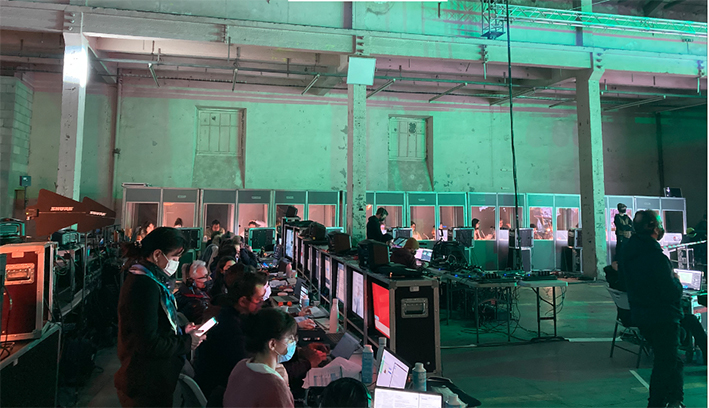Professional Interpreter
Experts in spoken communication, a professional interpreter is a specialist in oral communication who work across both the public sphere (governments, ministries, institutions) and the private sector (companies, associations, and more). But interpreting involves much more than simply translating words. Interpreters must embody the speaker, conveying not only the message but also their tone, style, intent, and personality.
Translation vs. Interpreting: Two Distinct Professions
People often confuse written translation with interpreting, but they are two different practices. Translation deals with converting written texts from one language to another, aiming to preserve the meaning, tone, and impact of the original.
Interpreting, in contrast, is an oral activity. It allows people from different language backgrounds to understand one another in real time. Interpreters process and deliver messages, often complex ones, on the spot. Both fields require a deep understanding of the content beyond the words, but while many interpreters are also translators, very few translators have the skills or training to interpret.
The Professional Interpreter’s Superpowers
Speaking several languages is just the starting point. A good interpreter must also be adaptable, quick-thinking, and fully at ease with the topic they are interpreting. Since much of communication includes implied meanings and cultural references, interpreters need a solid grasp of the cultures involved and how they differ.
Even in the best conditions, interpreting poses challenges. Speakers may talk quickly, use unclear phrasing, rely on technical jargon, or be hard to hear. Interpreting in such situations demands extreme concentration and skill. Some even compare the experience to performing on stage, like a stand-up comedian managing timing and audience cues.
Communication Experts
A Professional interpreter doesn’t just translate, they communicate. Their job is to render spoken messages into another language clearly and naturally, while preserving tone, emotion, and nuance. Their advanced language skills, sharp analytical thinking, and ability to stay calm under pressure make them true experts in communication.
With experience, many interpreters specialize in particular sectors such as law, medicine, international relations, or business. Having the right vocabulary in a given context is key to getting the message across effectively.
Three Levels of Professional Interpreters
-
Class 1 Professional interpreter: The Elite
These are top-tier interpreters. Experts in simultaneous and consecutive interpreting, they can handle highly technical or unscripted content in nearly any domain. Class 1 interpreters often work at international conferences, seminars, and high-level diplomatic events.
-
Class 2 Professional interpreter: Reliable for Frequent Use
Ideal for regular assignments, Class 2 interpreters are skilled in both simultaneous and consecutive interpreting. They are often found interpreting at corporate events, business meetings, executive committees, and webinars.
-
Class 3 Professional interpreter: Practical and Cost-Effective
Class 3 interpreters are trained in consecutive, whispered, and liaison interpreting. They’re best suited for everyday business meetings or working as escort interpreters. Some may also offer simultaneous interpreting during videoconferences, depending on the topic.
How to Become a Professional Interpreter
France offers many paths to a career in interpreting, including specialized training institutes and professional Master’s programs.
Three major schools in France are known for their interpreting degrees:
- ESIT (École Supérieure d’Interprètes et de Traducteurs) in Paris
- ISIT (Institut Supérieur d’Interprétation et de Traduction) in Paris
- ITI-RI (Institut de Traducteurs, d’Interprètes et de Relations Internationales) in Strasbourg
Other universities and institutes also offer relevant programs, often combining language training with specialization in areas like business or international relations. These include:
- ESTRI (École Supérieure de Traduction et Relations Internationales) in Lyon
- ESTICE (École Supérieure des Traducteurs, Interprètes et Cadres du Commerce Extérieur) in Lille
- IPLV (Institut de Pluridisciplinarité en Langues Vivantes) in Angers







